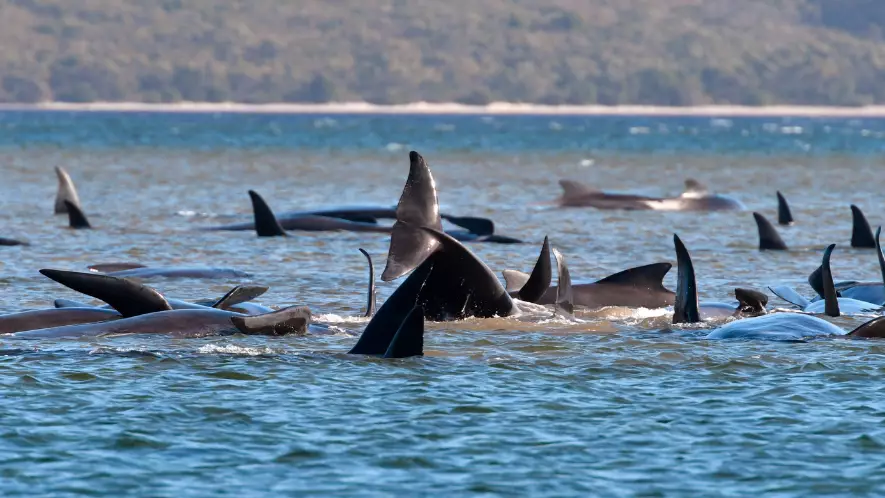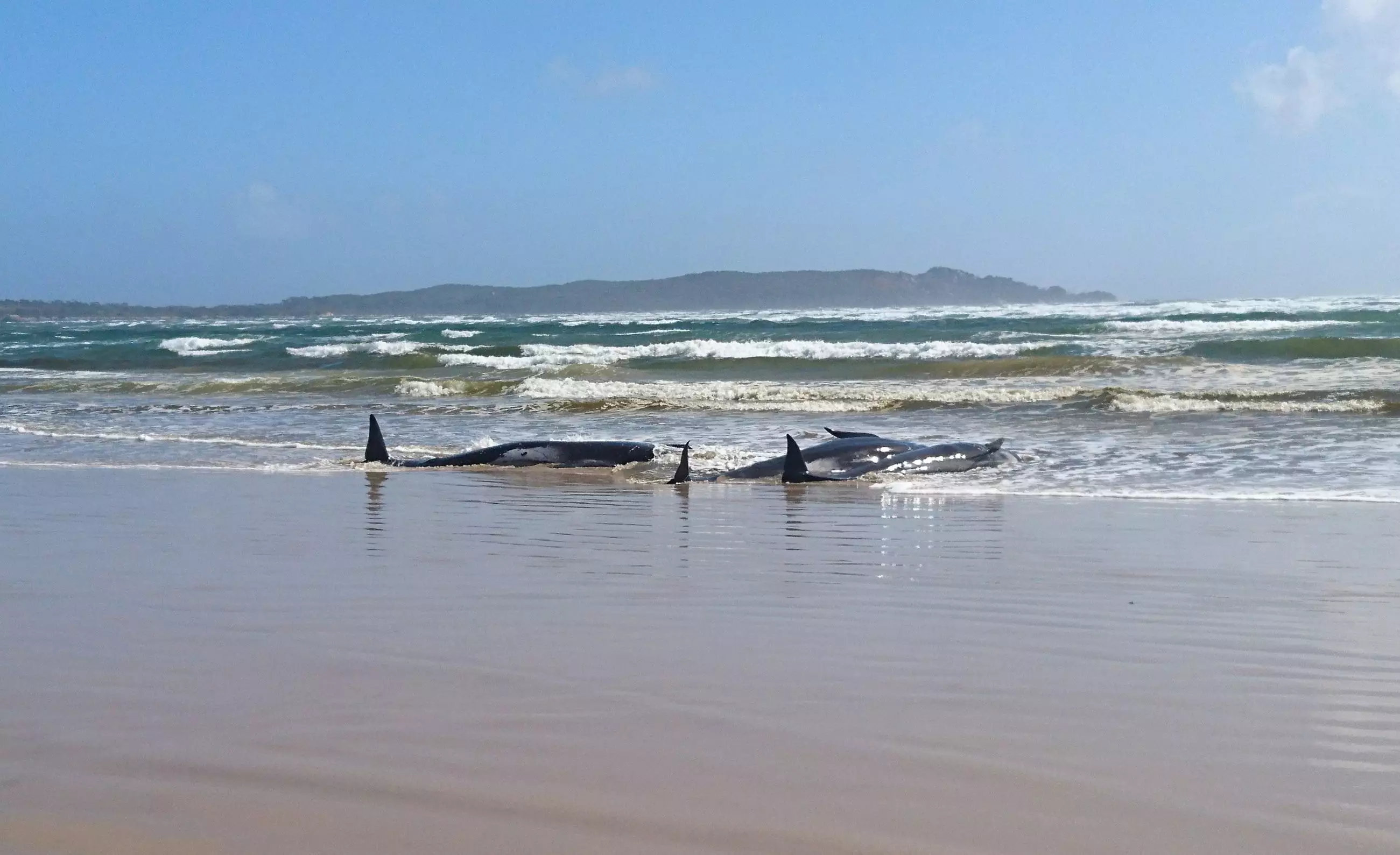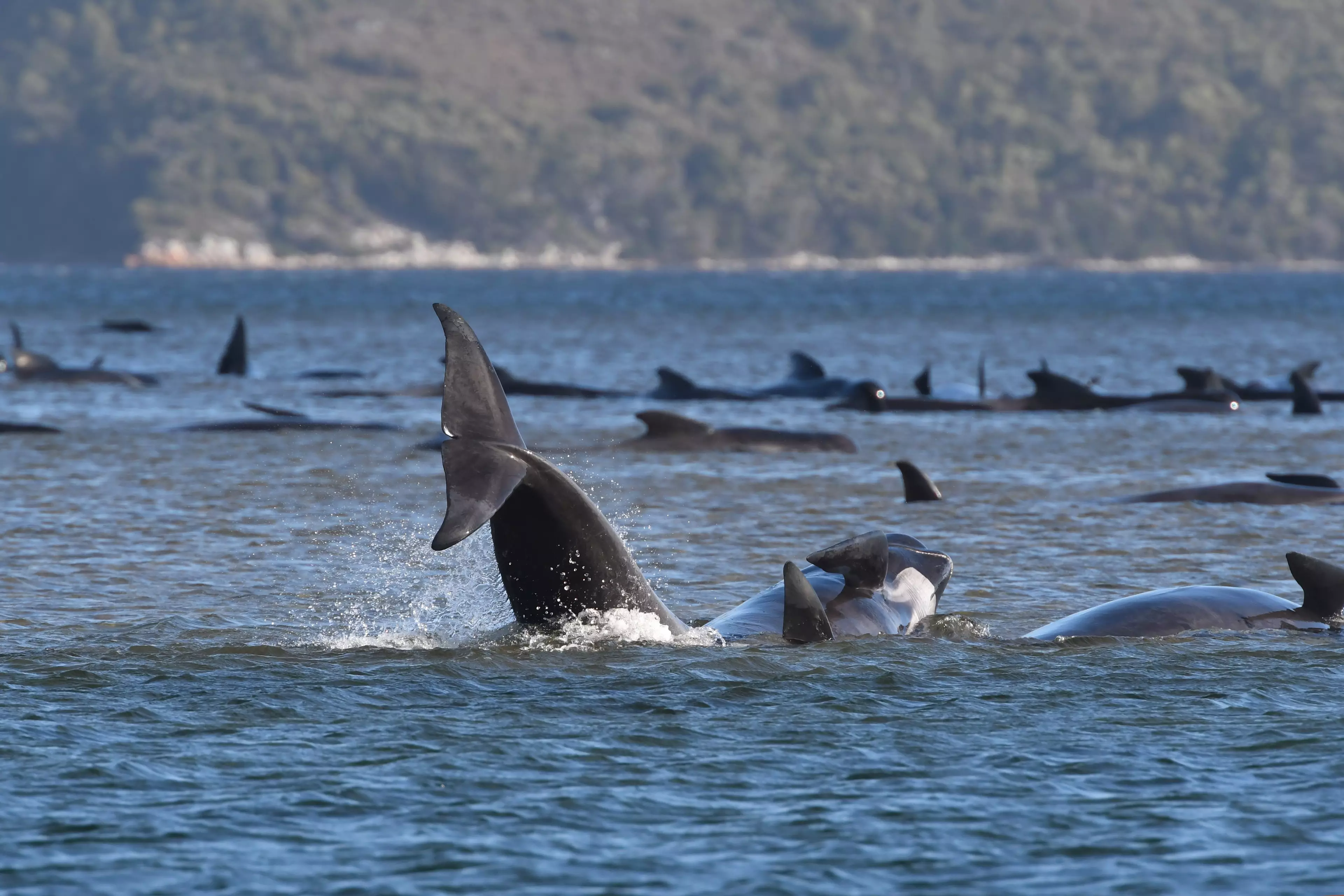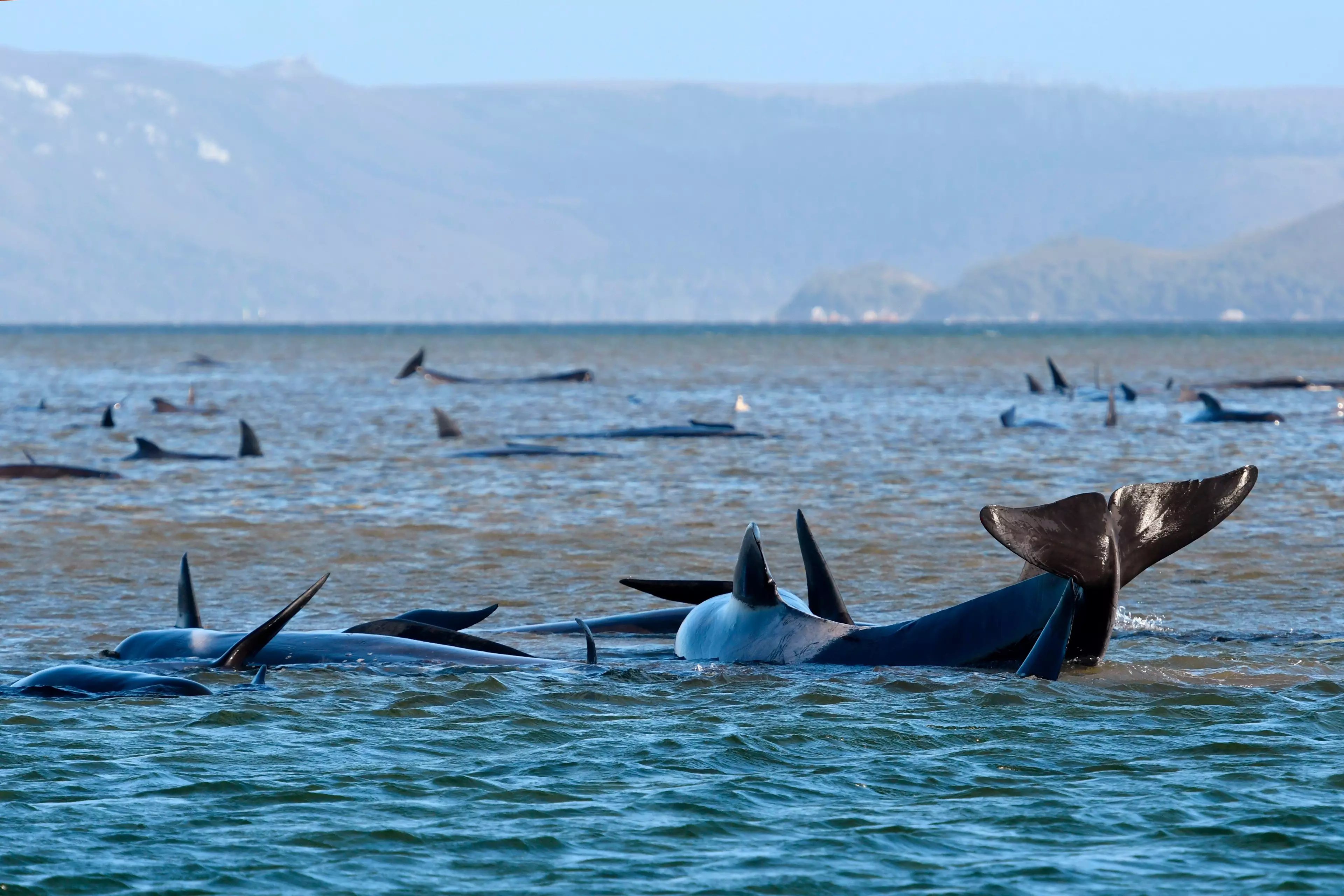
An estimated 380 whales have died in one of the largest mass strandings on record.
Hundreds of long-finned pilot whales have been found dead on Tasmania's west coast since Monday.
The mammals were washed up in the sand pits of Macquarie Heads - a known hotspot for strandings - with experts believing they were washed in with the tide.

According to Australian government officials, rescue workers were initially focused on 270 whales stranded near the town on Strahan, but a further 200 were spotted by helicopter 10km away on Wednesday morning. Sadly, they were all confirmed to be dead.
Advert
Recuse workers had managed to save 50 whales by Wednesday evening using slings and other equipment to remove them from the banks and reimmerse them in the water. They are now working on saving a remaining 30 more.
Officials said the rescue mission would continue "as long as there are live animals".

Nic Deka, regional manager for Tasmania's Parks and Wildlife Service told the BBC: "While they're still alive and in water, there's still hope for them - but as time goes on they do become more fatigued."
Advert
Deka added efforts would now also shift to removing the hundreds of carcasses that line the coast.
The stranding is Australia's worst on record.
It's thought the animals were all part of the same pod and, being social animals, could have followed any one stray whale to their deaths.
While the reasons why whales become beached is not fully known, some scientists believe they are lured to the beaches by fish and other prey where they become disorientated and stranded.

Dr Kris Carlyon, a marine conservation program wildlife biologist, told The Guardian that strandings like this are not human caused and are highly unpreventable.
Advert
"There's nothing to indicate that this [stranding] is human caused. This is a natural event and we know strandings have occurred before and we know that from the fossil record.
"As far as being able to prevent this occurring, there's little we can do."